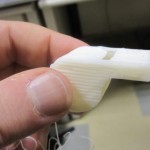Medicare is a lifeline for millions of Americans. It is the only way many folks can afford to see a physician or purchase prescription drugs. Unfortunately, Medicare fraud costs U.S. taxpayers billions per year.
A recent investigative journalism report by the public interest group ProPublica documents just how bad fraud has become.
Using Medicare’s own data, ProPublica identified dozens of physicians likely committing fraud. According to their report, one Miami doctor’s prescription costs skyrocketed 16 fold from just over $250,000 to $4 million in one year. Medicare administrators apparently didn’t even raise an eyebrow. Citing another example, ProPublica claims that a Los Angeles doctor reported someone was forging his name on prescriptions yet Medicare didn’t shut off his provider identification number and allowed that number to be used to fill more than $7 million worth of scripts.
Medicare costs taxpayers about $62 billion per year. Some experts say that Medicare fraud may be as high as 10% of that figure. Why so high? Apparently Medicare doesn’t audit prescription data, doesn’t listen to forgery complaints from doctors and doesn’t flag doctors who insist on using brand name drugs instead of generics. According to ProPublica, doctors who get booted from state funded Medicaid programs keep right on dispensing drugs through the Medicare program.
Suspension from one program should result in automatic suspension from all other programs. Says Senator Charles Grassley of Iowa, that practice “may speed their ability to protect Medicaid patients, but it can expose Medicare recipients to potentially unsafe medical treatment and keeps tax dollars flowing to unworthy providers.”
So what is the solution?
Obviously, an important first step is increased regulatory enforcement. Unfortunately, the problems have become so institutionalized, we wonder if the Centers for Medicare and Medicaid Services, the agency that administers these programs, can change overnight.
Our solution is increased awareness of existing whistleblower programs. Under the federal False Claims Act, whistleblowers who report Medicare fraud can receive up to 30% of whatever the government collects. (The average award is 20%.) That means if a whistleblower helps the government collect back $4 million from a bad doctor, the whistleblower may receive an award of $800,000.
The program is straightforward. To qualify, you must have original source information of a fraud involving federal monies or programs. A person with knowledge of a physician or clinic who rips off Medicare would qualify. With Medicaid funds (paid for by the state), a patchwork of state false claims act laws offer similar benefits in many states.
Because the federal law allows triple damages, a doctor who engages in a $4 million Medicare fraud may ultimately have to pay $12 million. That means an award of almost $2.5 million for the whistleblower.
Claims are initiated by filing a lawsuit in federal court. The suit is “sealed” by the court meaning it remains secret while the government investigates the claims. If the case ultimately proceeds, the whistleblower becomes entitled to an award based on how much money is recovered.
If you think you qualify as a Medicare fraud whistleblower, give us a call. Our whistleblower lawyers have helped people across the United States stop Medicare fraud and collect the maximum possible award. Currently we represent the whistleblower in the largest pending false claims act case against a bank or lender anywhere in the U.S.; HUD’s $2.4 billion complaint against Allied Home Mortgage.
Obviously not all cases have losses in the billions of dollars but the U.S. government is very interested in pursuing false claims act cases. Healthcare fraud cases are an especially hot topic these days. To learn if you may qualify for a whistleblower claim, contact attorney Brian Mahany at or by telephone at (direct). All inquiries are kept in strict confidence.
Post by Brian Mahany, Esq.


